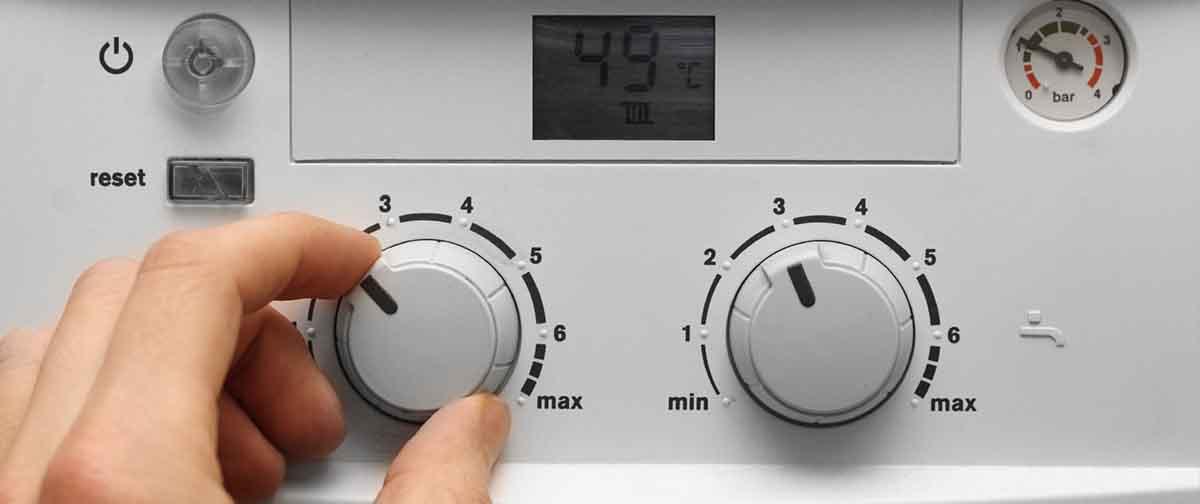What Is LPG & Is It Right For Your Home?

For off-grid homes, LPG is a highly efficient fuel alternative to oil, electricity and solid fuel such as coal. LPG is a lower carbon fuel than oil and coal and delivers a highly energy efficient performance when used in home heating.
What is LPG?
LPG, or Liquefied Petroleum Gas, is a popular fuel for heat and cookers, vehicles, BBQs and more. It's a colourless hydrocarbon gas which has been pressured into a liquid form. It is both highly efficient and low in carbon which has made it a popular alternative to oil heating for homes not connected to the natural gas network.
LPG can be extracted from natural gas streams or petroleum but usually it is collected as a byproduct of the crude oil refinery process.
LPG has a very low boiling point and at room temperature will evaporate back into a gas. However, it holds a lot more energy, and so is more efficient, when in a liquified problem. This is why it is stored in pressurised bottles and tanks to prevent it from evaporating.
Get Boiler Quotes
Propane vs Butane
There are two types of LPG: propane and butane. Both can be used to power appliances in homes and businesses, although each type has a different boiling temperature and is best suited to different applications.
Propane has a lower boiling point of -42°C and works better in lower temperatures. This makes it propane perfectly suited to powering heat and cooking appliances such as those used in caravans or patio heaters. Propane is also a popular choice for commercial applications.
Butane has a higher boiling point of -2°C and so is usually used in indoor settings such as gas heaters, cooking appliances and central heating boilers. Per cubic metre, butane provides more energy than propane.
Pros and cons of LPG
If your home is connected to the natural gas grid, switching to an LPG boiler is usually not recommended. This is because LPG is a more costly fuel than natural gas and LPG needs to be delivered and stored in a tank on your property, which means you need to ensure you have a regular delivery scheduled so you don't run out. If you do run out of fuel you may need to pay extra for an emergency delivery. Some LPG storage tanks such as Calor include a monitoring system which tracks how much fuel is left and automatically alerts your supplier when your supply is low.
However, for off-grid homes, LPG offers several benefits over oil, coal or electric heating systems. LPG is a highly efficient fuel and offers a great energy return on every you buy. In addition, when compared to coal and heating oil, LPG produces less carbon when burnt making it a cleaner fuel for our environment. LPG tends to cost more than heating oil, but prices fluctuate, and buying in bulk can bring the cost per litre down.
Read more on the pros and cons of LPG heating in Oil vs LPG: Pros, Cons and Costs.
Get Boiler Quotes
Although LPG is a cleaner fuel than oil, it still contributes carbon to the atmosphere and is therefore not a clean source of energy. If you are concerned about your home's carbon footprint, you may want to consider a renewable energy heating system such as an air source heat pump, solar thermal panels or a biomass boiler. These systems take energy from renewable resources and produce zero or very minimal carbon emissions.
You can find more information on the pros, cons and costs of LPG boilers here.
Storing LPG at home
In most homes with LPG heating, the LPG is bought in bulk and stored in a tank outside of the home or business. These tanks can either be installed above ground on a fixed base or underground. If you opt for an underground tank, you will only see a cover which enables the supplier to refill it as needed. Although the tank is on your property, in most cases it is still owned by the supplier. Buying LPG bulk is often cheaper than buying by the bottle and more convenient.
However, some homes can't accommodate this as they either can't store a large tank onsite or delivery access to the property is restricted. Small butane cylinders can be used for stoves or patio heaters, but larger cylinders of propane (over 40kg) are needed for LPG boilers. These cylinders need to be handled with care, should be delivered by a supplier and collected when empty.
Is an LPG boiler right for your home?
If your home is off-grid and you are looking to install an LPG boiler, you need to ensure the engineer is Gas Safe registered. Send us an enquiry today - we'll find up to 3 engineers in your area to provide free, no-obligation quotes.
Get Boiler Quotes



